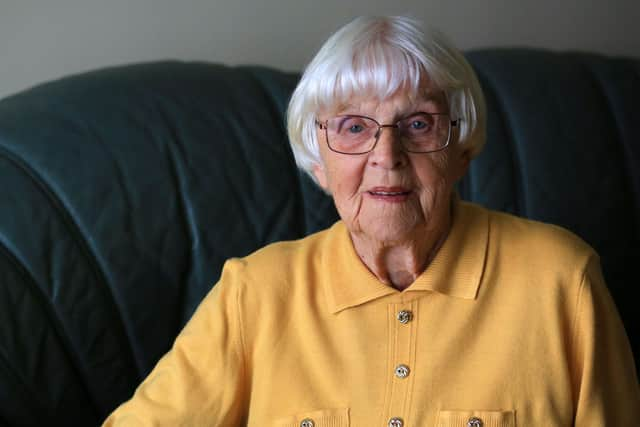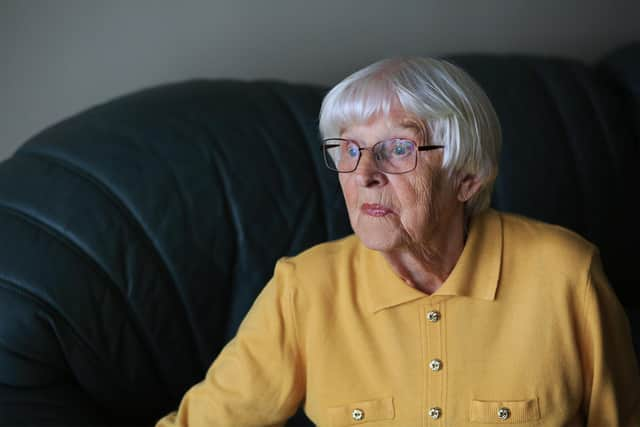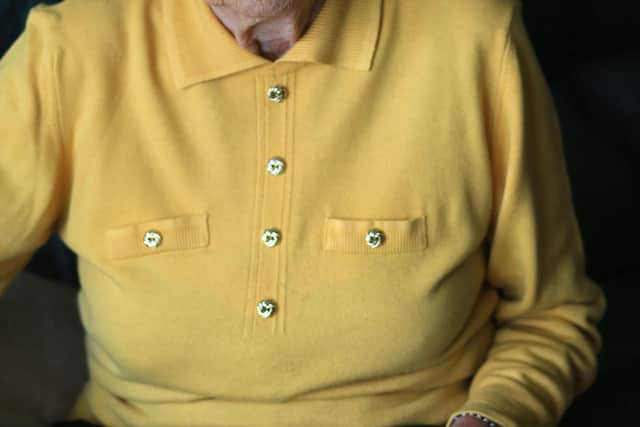Doncaster woman shares her wartime memories of working in the nurseries which were set up to allow mothers to work
and live on Freeview channel 276
When Margaret Edy was just 13 years old she worked in a wartime nursery in Elmfield Park.
The pop-up childcare was a result of World War Two and the need for women to join the workforce.
Advertisement
Hide AdAdvertisement
Hide AdMargaret, now 90 years old and living in Bessacarr has fond memories of her time working with those children and hearing the stories of the mothers when they picked up and dropped off their kids.


She said: “Those women could not have gone off making bombs if the nurseries did not exist.
“We were open from 7am to 7pm every day and took care of around 70 children.
Advertisement
Hide AdAdvertisement
Hide Ad“The nurseries were built in a rush, the council put up prefabricated buildings in Hexthorpe, Balby, and Wheatley.”


Margaret found herself helping out in the nursery at such a young age as the staff needed the extra help.
But the time she spent there influenced the rest of her life as she loved it so much she trained to become a teacher.
“I remember the mothers coming to pick up the children and telling us about the factories on Wheatley Hall Road,” she continued.
Advertisement
Hide AdAdvertisement
Hide Ad“They would bring us extra bits of parachute material so that we could make our own underwear from it.


“With rationing in full force, it was not like we could go shopping for new bras.”
Margaret says that the war forced opinions on women to change as they were working in traditionally male jobs for the first time.
She said: “Men thought that women were not intelligent enough to do their jobs back then.
Advertisement
Hide AdAdvertisement
Hide Ad“I remember a man being shocked that a woman had been employed to drive a train.
“It was very different back then, young girls were told to find a man to keep her.
“Women had to leave their jobs when they married and we didn’t have the birth control pill yet.”
Margaret divorced her husband in 1960 and bought her own home in 1961, something that she says was very uncommon at the time.
Advertisement
Hide AdAdvertisement
Hide AdWhen she approached an estate agent to find a new home she was told that no other woman had enquired about buying a house alone.
But it wasn’t long before her new independent life attracted others.
Margaret opened up her home to other single female teachers who then shared her house.
“In the beginning, all I had was a bed, a dining room table, and four chairs,” she said.
“My two children slept in the bed and I was on the floor.
Advertisement
Hide AdAdvertisement
Hide Ad“We didn’t have a cooker or curtains until the others moved in.”
With the rent of other teachers, Margaret says she had a happy existence in their home in Wheatley but they still had to be frugal.
On a Friday evening, they would visit the Doncaster market and haggle prices for leftover vegetables and fish.
Margaret was on the Doncaster High Street on the day that the Lord Mayor announced that the war was over.
Advertisement
Hide AdAdvertisement
Hide AdShe remembers all of the shop fronts lighting up and everyone breaking out into dance in the street.
She said: “I don’t know how many men I kissed that day.
“We were all so happy that it was over.”
Margaret remembers the hardship of spending dark Winter nights in shelters and the sounds of the bombs dropping down from above when she was a child.
“It was the worst in January when it would snow,” she said.
“We didn’t have dressing gowns during rationing.